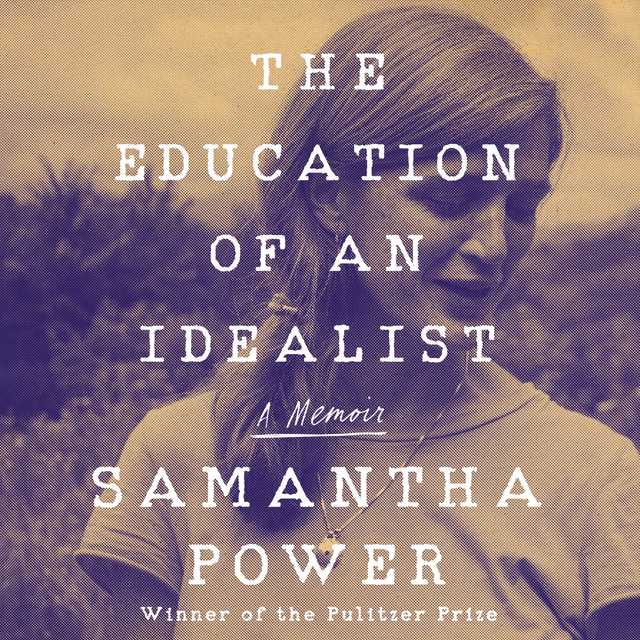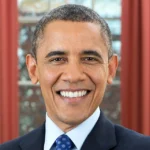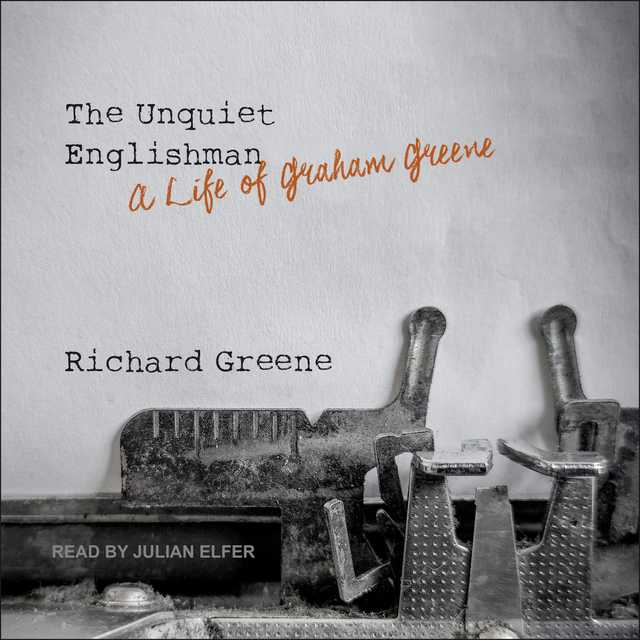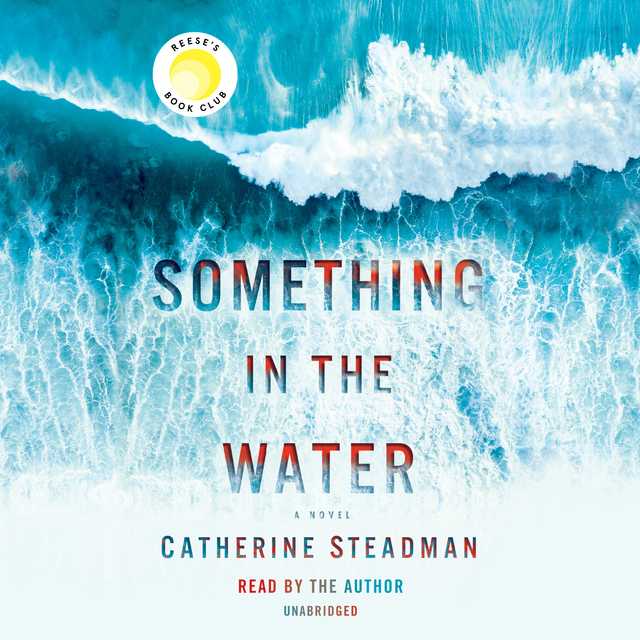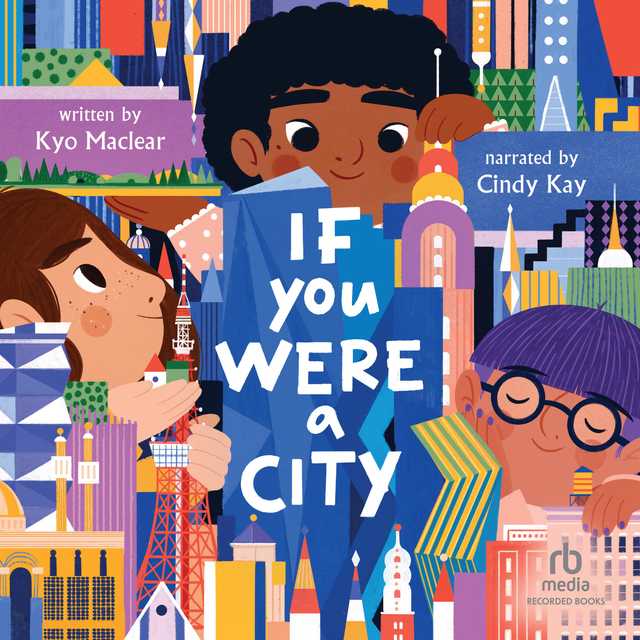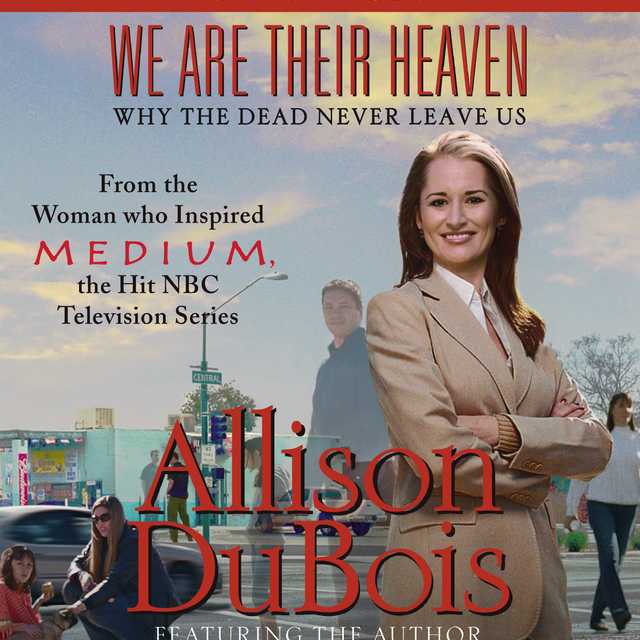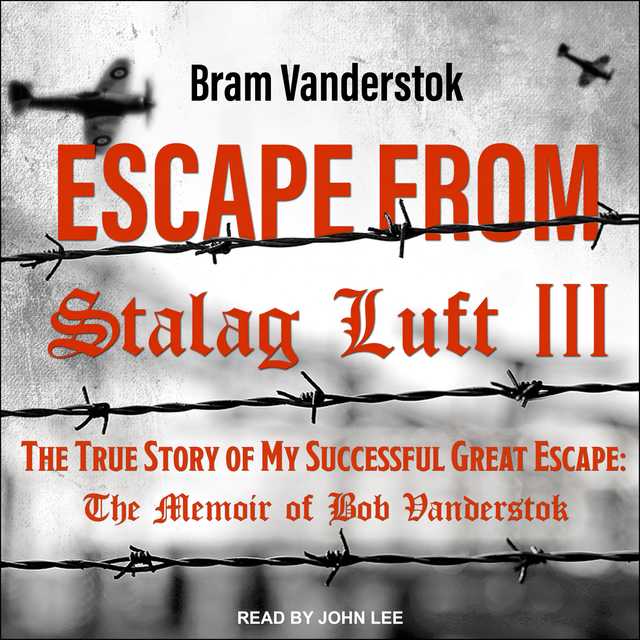Recommended by 1 experts
The Education of an Idealist Audiobook Summary
A NEW YORK TIMES, WALL STREET JOURNAL, AND USA TODAY BESTSELLER
ONE OF AUDIBLE’S BEST AUDIOBOOKS OF 2019
A NEW YORK TIMES NOTABLE BOOK OF 2019 * AN NPR BEST BOOK OF 2019 * ONE OF TIME’S MUST-READ BOOKS OF 2019 * AN ECONOMIST BOOK OF THE YEAR * A WASHINGTON POST NOTABLE BOOK OF 2019 * A PUBLISHERS WEEKLY BEST BOOK OF 2019
“Her highly personal and reflective memoir . . . is a must-read for anyone who cares about our role in a changing world.”–President Barack Obama
An intimate, powerful, and galvanizing memoir by Pulitzer Prize winner, human rights advocate, and former UN Ambassador Samantha Power.
In her memoir, Power offers an urgent response to the question “What can one person do?” and a call for a clearer eye, a kinder heart, and a more open and civil hand in our politics and daily lives. The Education of an Idealist traces Power’s distinctly American journey from immigrant to war correspondent to presidential Cabinet official. In 2005, her critiques of US foreign policy caught the eye of newly elected senator Barack Obama, who invited her to work with him on Capitol Hill and then on his presidential campaign. After Obama was elected president, Power went from being an activist outsider to a government insider, navigating the halls of power while trying to put her ideals into practice. She served for four years as Obama’s human rights adviser, and in 2013, he named her US Ambassador to the United Nations, the youngest American to assume the role.
Power transports us from her childhood in Dublin to the streets of war-torn Bosnia to the White House Situation Room and the world of high-stakes diplomacy. Humorous and deeply honest, The Education of an Idealist lays bare the searing battles and defining moments of her life and shows how she juggled the demands of a 24/7 national security job with the challenge of raising two young children. Along the way, she illuminates the intricacies of politics and geopolitics, reminding us how the United States can lead in the world, and why we each have the opportunity to advance the cause of human dignity. Power’s memoir is an unforgettable account of the power of idealism and of one person’s fierce determination to make a difference.
“This is a wonderful book. […] The interweaving of Power’s personal story, family story, diplomatic history and moral arguments is executed seamlessly and with unblinking honesty.”–THOMAS L. FRIEDMAN, The New York Times Book Review
“Honest, personal, revealing… about the development of a young woman’s inner strength and self-knowledge.”–COLM TOIBIN, author of Brooklyn and Nora Webster
“Truly engrossing.”–RACHEL MADDOW
Other Top Audiobooks
The Education of an Idealist Audiobook Narrator
Samantha Power is the narrator of The Education of an Idealist audiobook that was written by Samantha Power
Samantha Power is a Professor of Practice at the Harvard Kennedy School and Harvard Law School. From 2013-2017, Power served as the U.S. Ambassador to the United Nations and a member of President Obama’s cabinet. From 2009-2013, Power served on the National Security Council as Special Assistant to the President for Multilateral Affairs and Human Rights. Power began her career as a journalist, reporting from places such as Bosnia, East Timor, Kosovo, Rwanda, Sudan, and Zimbabwe, and she was the founding executive director of the Carr Center for Human Rights Policy at the Kennedy School. Power’s book, ”A Problem from Hell”: America and the Age of Genocide won the Pulitzer Prize in 2003. She is also the author of the New York Times bestsellers Chasing the Flame: One Man’s Fight to Save the World (2008) and The Education of an Idealist: A Memoir (2019), which was named one of the best books of 2019 by the New York Times, Washington Post, Economist, NPR, and TIME. Power earned a B.A. from Yale University and a J.D. from Harvard Law School.
About the Author(s) of The Education of an Idealist
Samantha Power is the author of The Education of an Idealist
More From the Same
- Publisher : HarperAudio
- Abraham
- American Gods [TV Tie-In]
- Dead Ringer
- House of Sand and Fog
- Prey
The Education of an Idealist Full Details
| Narrator | Samantha Power |
| Length | 21 hours 8 minutes |
| Author | Samantha Power |
| Category | |
| Publisher | HarperAudio |
| Release date | September 10, 2019 |
| ISBN | 9780062956484 |
Subjects
The publisher of the The Education of an Idealist is HarperAudio. includes the following subjects: The BISAC Subject Code is Human Rights, Political Science
Additional info
The publisher of the The Education of an Idealist is HarperAudio. The imprint is HarperAudio. It is supplied by HarperAudio. The ISBN-13 is 9780062956484.
Global Availability
This book is only available in the United States.
The Education of an Idealist is recommended by
Goodreads Reviews
Esil
January 06, 2020
3.5 starsI would have liked The Education of an Idealist much more if it had been shorter, although I’m still glad I listened to it. Samantha Power is probably best known as an ambassador to the UN under the Obama administration. But the parts of her memoir I liked the best were her childhood in Ireland and family background, her move to the US and her earlier work covering the war in Bosnia. Her discussion of her more recent years felt overly long and a bit too self-aggrandizing. But, still, her keen intelligence, tenacity and fearlessness are admirable. And her view on today’s world is extremely relevant.She has a great voice, so this works well as an audio.
Jean
October 15, 2019
Power was awarded the 2003 Pulitzer Prize for her book “A Problem from Hell: America and the Age of Genocide”. Power was a journalist covering the Balkan War when she started writing the book. She stated it took her ten years to write the book. She did not finish it until she had graduated from law school. She then had many rejection slips from publishers.The book is well written and researched. Power tells about being born in Ireland and immigrating as a child to the United States. She tells about her early life, education and her career in journalism and then as the United States Ambassador to the United Nations. Power writes in-depth about her attempts to influence foreign policy from both inside and outside government. She also tells of the sexism she had to put up with as the only woman in the room. I was impressed at how well the book is written. Power discusses not only her successes but also her mistakes. Power is now on the faculty at Harvard Law School. I found this to be an interesting book about someone I knew little about. You need to read the book for all the details particularly about being Ambassador to the United Nations; I only highlighted a small sample of the book. I read this as an audiobook downloaded from Audible. The book is twenty-one hours and two minutes. Power narrators her own book.
Prasan
October 03, 2019
Samantha Power is an exceptional writer, but the book has serious blindspots. This is written as a personal memoir, taking you from Ms Power's childhood in Ireland, her journey to America, her involvement as a war reporter in Bosnia, and her eventual transformation into an advocate for "liberal interventionism" - that is, a posture that advocates that the United States and its Western allies must intervene militarily to stop massacres of civilians where they occur. In addition, she writes about her experience in the Obama administration, and what goes on behind the scenes when crafting US foreign policy.There are plenty of anecdotes in this book that do make you empathize with her position. War is always horrific, and deliberate civilian massacres even more so. The NATO intervention in Bosnia undeniably saved tens of thousands of lives. She does a good job of communicating her frustration with the Obama administration's inaction in Syria when Bashar Al-Assad employed chemical weapons on his own population, and while I was never convinced that any military action short of total invasion could have stemmed the bloodshed, she at least makes an honest argument for some action (if only to stop chemical weapons).There are two major shortfalls however, that Ms Power never examines. First, she neglects to look at the atmosphere of paranoia created in the developing world by the US having an aggressively forward posture around the globe. Daniel Bessner writes an excellent review on this same book that deals with this issue considerably, available at: https://newrepublic.com/article/15461...A quote from the above review appears below:"""The assumption running through Power’s career is that the American empire is able to act as a force for good in the world. At her memoir’s end—and in the wake of Afghanistan, Iraq, Libya, and Syria—she affirms that “on issue after issue, either the United States brought a game plan to the table or else the problem worsened.” Though this might be true in some cases, it is certainly not the rule, especially when one considers the disastrous effects of the nation’s wars in the Greater Middle East; its pointless antagonism of China, Russia, and Iran; its unwillingness to take the business-unfriendly steps required to arrest climate change; and its unhesitating promotion of a capitalist system that has exploited the labor of untold millions. The last several decades have taught us that the world needs far less American “leadership” than it has enjoyed."""This is something I fiercely agree with. Secondly & even more astoundingly, Ms Power completely ignores the American role in Yemen in her entire memoir, which is really remarkable, given that the war began during her tenure. It is much easier to save civilian lives by not participating in bombing them. Yet, Ms Power ignores this easy option, and focuses on the hard option of trying to stop some unrelated power from bombing civilians in a country where the US is not heavily engaged. This omission can genuinely make the reader wonder if she was ever interested in saving civilian lives at all, or whether humanitarian intervention is just seen as a better cover to advance American imperial interests; rather than an action stemming out of concern for civilian lives.An interesting anecdote occurs after Assad’s first major chemical weapons strike that highlights the rather hypocritical nature in which the foreign policy elite tend to make decisions. Ms Power recounts that when Obama decided to go to Congress (something that is constitutionally mandated) in order to seek approval for retaliatory strikes on Assad, she was extremely upset. This is not merely an odd position to take, it is a dangerous one - suggesting that executive abuse of power should be a routine occurrence, and that relying on a democratic mandate in order to go to war is something one ought to avoid.Again, this doesn’t take away from the numerous merits of the book. If you want to understand how the US foreign policy machinery works, this is an excellent read. The author is also an excellent writer, and the story flows effortlessly and keeps the reader engaged. However, the extreme focus on what to do when somebody outside the US alliance misbehaves comes across quite clearly as a distraction from the US’ own misbehavior on the world stage, which is what makes this book as infuriating as it is engaging.
Daeny
September 19, 2019
Oh man. I really appreciated this. It reminds me of when I read Madeleine Albright’s memoir in high school and provokes the same emotions - inspiration and a desire to go out there and do something. It makes me wonder if I should switch my major to International Relations (which I won’t do because I’m already having a crisis). It’s really nice to see an insider perspective on US foreign policy under Obama, and to read work from someone who struggled with being outspoken vs. being the perfect face of the government. I’m so lucky that I get to see Power speak tonight.
Cody
June 16, 2020
“People who care, act, and refuse to give up may not change THE world, but they can change many individual worlds.” Samantha Power's Memoir "The Education of an Idealist" reads as an honest, upfront, and rather refreshing look at an Irish immigrant's upbringing against the backdrop of quite a politically led life in American politics. There's a great sense of humility as Power brings up her own idealisms whilst consistently upfront about her own shortcomings. That weighted judgement against herself lends to her credibility as a witness to American political history, and is quite rewarding for it. It never feels too preachy or pollyanna, although many could accuse Power of being just those, having not dived into her personal life as this book does. What's more, this book really adds layers to the past 30 years of international politics concerning the government of the United States.There's a lot of touching and moving moments amongst The Education of an Idealist's pages. Power struggles with many human atrocities, such as the genocides in Bosnia and various nations in Africa and the Middle East, while adding some particularly funny moments discussing romance and motherhood. One of the most touching moments in the book comes from her time as ambassador to the UN. There's a particularly touching moment when she visits the UN office of the little known country of the Central African Republic, so small a country it's atrocities and concerns are little known, just like it's tiny "office" of just two people. As Samantha and the CAR ambassador are talking, it becomes apparent that his new suit, fresh roses, and modest but tidy office are attempts to prepare and try and show how important the occasion is for their country, that the US is giving them a meeting. The CAR ambassador tears up whilst trying to explain his country's problems, and says he is emotional not just because of his country's dire situation, but because a country like the United States is actually giving him an audience. It's a very sad but uplifting chapter to read. Another touching chapter is how Sam befriends the Russian ambassador Vitaly Churkin. This is of particular significance due to the difficult US-Russia relations and the frequent political butting of heads between the two. For anyone who enjoys reading about political and international relations, this can be a rewarding book.However, perhaps the most significant aspect of this book is Samantha's relationship with Barack Obama. It's a relationship that is very informative of the president as a realist man of ideals, and adds to his cool factor. Obama plays hardened but charming and popular heart-of-gold high school quarterback and Power becomes the sort of awkward math and science nerd who's social skills becoming quite hilarious to witness. Quite an enjoyable friendship to witness. This very frank and insightful memoir is a must read for any political reading list.
Connie
January 08, 2020
It was my good luck to interview Samantha Power on stage last fall for an event hosted by Cuyahoga County Public Library. Of course, this required me to read her memoir in advance. I have been recommending this book to young women especially, as she is so honest about the trajectory of her life, and her career in ways that can inspire.
Steven
October 13, 2019
Toward the end of my teaching career I had the opportunity of meeting Samantha Power and she proved to be a warm individual with a sardonic sense of humor. The occasion was a Model Congress trip to Washington with over thirty teenagers who were role playing our legislative branch of government with over 1000 other students from all over the United States. During our Saturday afternoon break we walked over to the White House and met with Ambassador Power in her office where she proceeded to spend a few hours with us reviewing the national security process in the Obama administration and engaged my students with the myriad of foreign policy issues then facing the United States. The afternoon session is something that my students have still not forgotten and neither have I as Power took the time to try and educate a group of teenagers and make them aware of the importance of protecting American national security and the importance of promoting human rights worldwide. Up until that time my familiarity with Power was as an academic having used her Pulitzer Prize winning book “A PROBLEM FROM HELL”: AMERICA IN THE AGE OF GENOCIDE as a class text, and CHASING THE FLAME: ONE MAN’S FIGHT TO SAVE THE WORLD, the poignant story of Sergio de Mello who worked for the United Nations to try and bring peace to Iraq, Bosnia, Cambodia among others before he was killed in Iraq. Her latest effort is a personal memoir, THE EDUCATION OF AN IDEALIST where Power describes her life’s journey from immigrating from Ireland as a child, war correspondent, to presidential Cabinet official in a deeply personal way, but also providing incisive analysis of the issues she has dealt with during her career.Power was raised in a loving but dysfunctional family. Her mother was a doctor and father a dentist. She received support from both parents, but her father’s alcoholism would ruin the marriage and form a cloud that hovered over Samantha’s childhood. Despite her father’s addiction he was an attentive father who took her to Hartigan’s Pub on a regular basis where he spent time with her, but mostly she read her books. Once her mother had enough, she emigrated to the United States when Samantha was nine leaving her father behind. The situation created deep emotional issues for Power throughout her remaining childhood and adulthood which she explores in a deeply personal and at times sad manner that would impact her relationships with men until she met Cass Sunstein. Power uses her memoir as sort of a catharsis as she explores her unresolved issues with “abandoning her father” who would later die from his disease at a young age. Power deeply ponders if she had remained or at least had a closer relationship with her father might he have survived. The guilt involved plagued her for years.The memoir explores many personal issues that makes the telling of her life story more human than most. She engages the reader through her relationship issues with men and how her courtship with Cass Sunstein evolved and what finally achieving a secure family meant to her. Her discussion of her pregnancy and the birth of her son Declan is a mirror to the type of mother she will become. Her vignettes about breast feeding in the “old boys network” of the State Department is priceless as is her discussion of the “support group” that was developed by woman who served on the National Security Council is entertaining, but projects the reality of women whose career paths took them into a male stronghold.Power’s future political views can be seen developing early on as she dealt with her school’s racial integration in Dekalb County, Georgia while in Middle School. Her education would bring her to Yale and travels to Eastern Europe where she saw the effects of the rise of liberal democracy in Czechoslovakia and Poland, but not in Yugoslavia. She would intern at the National Security Archive, a liberal NGO involved with Freedom of Information requests. With the guidance of Mort Abramowitz, a former Ambassador to Thailand and Turkey, as well as Assistant Secretary of State for Intelligence and Research and Fred Cluny, a human rights activist, Power became a journalist where she witnessed the horrors of the Bosnian Civil War in 1993. She encountered the siege of Sarajevo, the massacre at Srebrenica from her base in Zagreb, Croatia which greatly impacted her views on human rights and what could be done to prevent this type of ethnic cleansing from breaking out elsewhere.Her book “A PROBLEM FROM HELL: AMERICA AND THE AGE OF GENOCIDE altered her career trajectory and her life’s path. She raised questions about the nature of individual responsibility in the face of injustice, as she calls “upstanders v. bystanders.” Power interestingly points out that many critics have argued her monograph was a justification for the invasion of Iraq. In reality she condemns the United States for doing nothing about the different genocides she has researched particularly when there were options that Washington could have chosen to lessen the impact of events that resulted in so many deaths. Power describes in detail her relationship with Barack Obama for whom she became a foreign policy fellow on his Senate staff in 2005. She explores Obama’s rise to the presidency and her role as a staffer during the campaign and the pitfalls that resulted, i.e.; calling Hillary Clinton a “monster” which caused her temporary exile from the Obama team. During the Obama administration she would become the Human Rights expert on the National Security Council, worked closely with Ambassador Susan Rice at the United Nations, developed an office in charge of aiding Iraqi Refugees, and eventually replaced Rice at the United Nations. In discussing all of her positions she delves into her frustrations of policies she was not able to impact, the National Security process within the Obama administration, and her successes and failures.Important issues are dissected throughout parts of her book that deal with the Obama administration. Power does a nice job providing the historical context of each crisis that the Obama administration was presented with. Be it Libya, “genocide” controversy with Turkey, Assad’s use of Sarin gas during the Syrian Civil War, or Putin’s invasion of eastern Ukraine and seizure of Crimea she is able to place contemporary crisis’ within a larger historical narrative. The issue of Libya is front and center as Colonel Muammar Qaddafi is overthrown and the ensuing violence would result in the death of US Ambassador Christopher Hill at Benghazi which created a firestorm set by Republicans. Power lays out Obama’s thinking and belief that the US had led the movement that stopped the massacre of Libyan civilians and it was now Europe’s turn to carry the load. He did not want to commit US troops and Power concludes there was probably little Washington could have done to prevent events that transpired following Qaddafi’s death. Of all the sections in the book it seems that the death at Benghazi are given short shrift. I would have expected Power to offer further insights to what transpired and how the issue would dominate politics up until and throughout the 2016 presidential campaign.The Syrian Civil War probably did the most to damage the Obama administration’s reputation in the world and at home. First, when learning of Assad’s use of chemical weapons Obama put forth his “Red Line” that if crossed would result in a military response by the United States. Obama with reasons explained by Powers would backtrack and pursue Congressional approval for US air strikes which was not forthcoming. In the end Vladimir Putin for his own reasons would agree to a UN Resolution to destroy a significant amount of Assad’s stockpile of chemical weapons, but the damage was done, and Obama’s foreign policy became a further target for Republicans. Power supports Obama’s rationale, but in retrospect she argues that the United States should have followed through and bombed Syrian targets designated by the Pentagon, and at least attempted to mobilize a group of countries to oversee a “no-fly zone.” This would have provided some security for Syrian civilians, but with the numerous factions, the role of Russia, and the vagaries of war anything that might have been tried would not have ended the civil war.Among other frustrations that Power had to work through professionally was the issue of the Armenian genocide that dates back to World War I. As I write Turkish planes and troops are killing hundreds of Syrian Kurds and fostering a migration of thousands. This is a pattern in Turkish history, and when the issue of the April 24, 2009 anniversary of the 1915 genocide of Armenians arose Power worked to include the word “genocide” as part of the American government’s characterization of the event. Power describes how difficult it was to change American policy, from which she failed. But at least there was a decision-making process, unlike the current administration when it decided to give Istanbul free rein to kill Armenians once again.Perhaps the most egregious issue that Power dealt with was Ukraine. In 2014 Putin’s Russia invaded Eastern Ukraine and seized the Crimea. Power reviews the machinations behind the scenes at the United Nations and inside Obama’s National Security apparatus nicely but what is most fascinating is how she evokes some sympathy for Vitaly Churkin, the Russian Ambassador to the United Nations. She explores how the ambassador tried to defend positions that he knew were totally indefensible. At times she would surreptitiously meet with Churkin and try to reach an accommodation dealing with eastern Ukraine. Churkin’s usual defense was that Putin was monitoring negotiations and his view was clear; if the western countries embraced a particular cause, then as if by reflex Moscow would pursue the opposite position. An excellent example came with the 20th anniversary of the Srebrenican genocide which Putin refused to label “genocide” in the Security Council. Power would gain a measure of revenge when she worked to block Russia from occupying a seat on the Human Rights Council by one vote!Overall, Power has delivered an exceptional memoir that reflects her humanity and honesty. She puts forth her feelings for the reader to engage and comes across as a warm-hearted person who has overcome emotional baggage that she carried around for years. This book is not your typical memoir and I commend it for its depth of analysis, insights into the human condition, and exploration of how difficult it is for America to lead in a world dealing with problems that Trumpist isolationism exacerbates resulting in a vacuum that Iran, Russia, and China are already beginning to fill. Power’s work at the United Nations should be a model for an American Ambassador to the United Nations, for evidence review her work in dealing with the Ebola crisis in Africa. It is not about being liberal or conservative it is about what is best for the United States and humanity in general, not a platform for racism and demeaning allies.Thomas Friedman sums it up best in describing Power’s book, It’s an unusual combination of autobiography, diplomatic history, moral argument and manual on how to breast-feed a child with one hand while talking to Secretary of State John Kerry on a cellphone with the other. The interweaving of Power’s personal story, family story, diplomatic history and moral arguments is executed seamlessly — and with unblinking honesty.and,When it comes to striking that right balance between idealism and realism, this book is basically a dialogue between the young, uncompromising, super idealistic Power — who cold-calls senior American officials at night at home to berate them for not doing more to stop the killing in Bosnia — and the more sober policymaker Power, who struggles to balance her idealism with realism, and who frets that she’s become one of those officials she despised.*• Thomas Friedman, “What Samantha Power Learned on the Job,” New York Times, September 10, 2019.
Jason
April 30, 2020
I loved just about every minute of listening to this audiobook, narrated by Samantha Power herself. She is a great writer with a great story to tell. The memoir is a chronological telling of her life from leaving Ireland as a child to just about every issue she worked on at the United Nations, but somehow it works as a unified narrative arc with characters and themes that reappear, well chosen details to illustrate bigger points, and a process that includes both change (“education”) but also a lot of continuity (“idealist”).Often one rushes through the early years in a biography or memoir, but in this one they are fascinating and would have been a great standalone even if Power never went on to her bigger public role. The issues Power confronted and her perspective on them were well told. Personally I found her accounts of major events that I had barely paid attention to (e.g., her helping the United States to get involved to reduce violence in the Central African Republic) was more interesting than her perspective on the more familiar conflict in Syria. But all of it was very much worth reading.
Brandon
November 01, 2019
Totally inspiring, a magnificent book about a person determined to make a difference and struggling to be the change she wants to see in the world. Power is frank in describing the nuance of international relations and the failings of U.S. policy, but where the book really shines is in her warm and endearingly personal revelations about her family and anxiety and the mentors she met along the way.
Robert
November 03, 2019
Samantha Power's early career–from serving as a freelance journalist/war correspondent covering the genocide in Bosnia to her years working in the Obama administration and as the US Ambassador to the UN–was remarkable. She saw first hand such a dramatic range of world events that it's hard to contextualize it all. And had I ever worked in government, I would have wanted to stand beside her as she campaigned for change. As a book, however, I found her memoir frustrating for a couple of reasons. First, it's simply too long. Each section could have been condensed without altering the essential message. Second, despite her early years as a journalist, the writing itself is uncomfortable. She's been both praised and panned for her writing style in this book, and I have to admit I'm on the "pan" side. She writes like a bureaucrat and splits infinitives like nobody's business. Third, her tone is simultaneously self-congratulatory and defensive. It reminded me of why I abandoned the show Scandal. If I had to hear that group of ethically challenged characters say they "wear the white hats" one more time, I would have chucked my television out the window. While I'm not in any way questioning Power's ethics (far from it), she writes with that same sense of self-praise and humble-bragging that I found off-putting. And fourth, there are some major silences in this book. There's virtually nothing about North Korea, China, Israel and Palestine, or America's own immigration policies–all vital foreign policy issues that were important during Obama's eight-year administration. I'm glad I read it and I feel as if I learned a great deal about foreign policy during the Obama administration, but as a book, I think it was less successful than her actual work at the UN.
David
June 10, 2022
Mad respect for Samantha Power. Proud to know she continues to represent the US abroad as Director of USAID. I loved reading her backstage experiences of US foreign policy, and her candor was remarkably refreshing. I would absolutely consider her something of an inspiration and a role model to me after reading this. I left this book experiencing a range of emotions though. In some cases, deep pride in the capacity of the US to do good in the world. But also, naturally, immense shame, betrayal, and heartache at not only our impotence, but also our abandonment of the vulnerable across the world. Much of Samantha’s own frustration and grief of this stemmed from the Obama Administration’s non-response on Syria. Reading more about the Administration’s agonizing paralysis on Syria, which left millions of Syrians to suffer the greatest humanitarian catastrophes and violence seen in the modern world, only deepened my anguish and sense that the world abandoned Syria, where my family is from. This book pressed in on that wound. And yet I’m grateful for it. It was a reminder of the constraints of “hegemony” and the limits of state power. And it was a spur to do more to reverse the abandonment of Syrians and fight for their dignity. I intend to follow through with that challenge. I wasn’t particularly wowed with her writing, but I think this book was a wonderful read and well worth your time, simply because Samantha is a deep thinker and passionate advocate. We need more people like her.
Chris
September 17, 2019
Definitely the best book that I've read this year - and well-deserving of the 5-star rating. In addition to being an incredibly well-written memoir of a fascinating life, Ms. Power puts context around some of the most difficult foreign policy decisions made during the past decade. Most of us understand that decisions made at the highest levels of our government are not as simple as they seem, but it's difficult to truly imagine the complexity. Most of all, it's difficult to remember that these decisions are being made by human beings, with their own conscience and values and fallibility and, often, uncertainties.I particularly appreciated that Power did not shy away from criticism of decisions made - particularly the difficult decisions around Syria - but also did not pretend to have had the "right" answer. Overall, just a great book and insight into foreign policy and the power of a single person's commitment to making the world a better place. For foreign policy wonks, I put this one up with Ronan Farrow's "War on Peace" as must-reads.
Most Popular Audiobooks
Frequently asked questions
Listening to audiobooks not only easy, it is also very convenient. You can listen to audiobooks on almost every device. From your laptop to your smart phone or even a smart speaker like Apple HomePod or even Alexa. Here’s how you can get started listening to audiobooks.
- 1. Download your favorite audiobook app such as Speechify.
- 2. Sign up for an account.
- 3. Browse the library for the best audiobooks and select the first one for free
- 4. Download the audiobook file to your device
- 5. Open the Speechify audiobook app and select the audiobook you want to listen to.
- 6. Adjust the playback speed and other settings to your preference.
- 7. Press play and enjoy!
While you can listen to the bestsellers on almost any device, and preferences may vary, generally smart phones are offer the most convenience factor. You could be working out, grocery shopping, or even watching your dog in the dog park on a Saturday morning.
However, most audiobook apps work across multiple devices so you can pick up that riveting new Stephen King book you started at the dog park, back on your laptop when you get back home.
Speechify is one of the best apps for audiobooks. The pricing structure is the most competitive in the market and the app is easy to use. It features the best sellers and award winning authors. Listen to your favorite books or discover new ones and listen to real voice actors read to you. Getting started is easy, the first book is free.
Research showcasing the brain health benefits of reading on a regular basis is wide-ranging and undeniable. However, research comparing the benefits of reading vs listening is much more sparse. According to professor of psychology and author Dr. Kristen Willeumier, though, there is good reason to believe that the reading experience provided by audiobooks offers many of the same brain benefits as reading a physical book.
Audiobooks are recordings of books that are read aloud by a professional voice actor. The recordings are typically available for purchase and download in digital formats such as MP3, WMA, or AAC. They can also be streamed from online services like Speechify, Audible, AppleBooks, or Spotify.
You simply download the app onto your smart phone, create your account, and in Speechify, you can choose your first book, from our vast library of best-sellers and classics, to read for free.
Audiobooks, like real books can add up over time. Here’s where you can listen to audiobooks for free. Speechify let’s you read your first best seller for free. Apart from that, we have a vast selection of free audiobooks that you can enjoy. Get the same rich experience no matter if the book was free or not.
It depends. Yes, there are free audiobooks and paid audiobooks. Speechify offers a blend of both!
It varies. The easiest way depends on a few things. The app and service you use, which device, and platform. Speechify is the easiest way to listen to audiobooks. Downloading the app is quick. It is not a large app and does not eat up space on your iPhone or Android device.
Listening to audiobooks on your smart phone, with Speechify, is the easiest way to listen to audiobooks.

